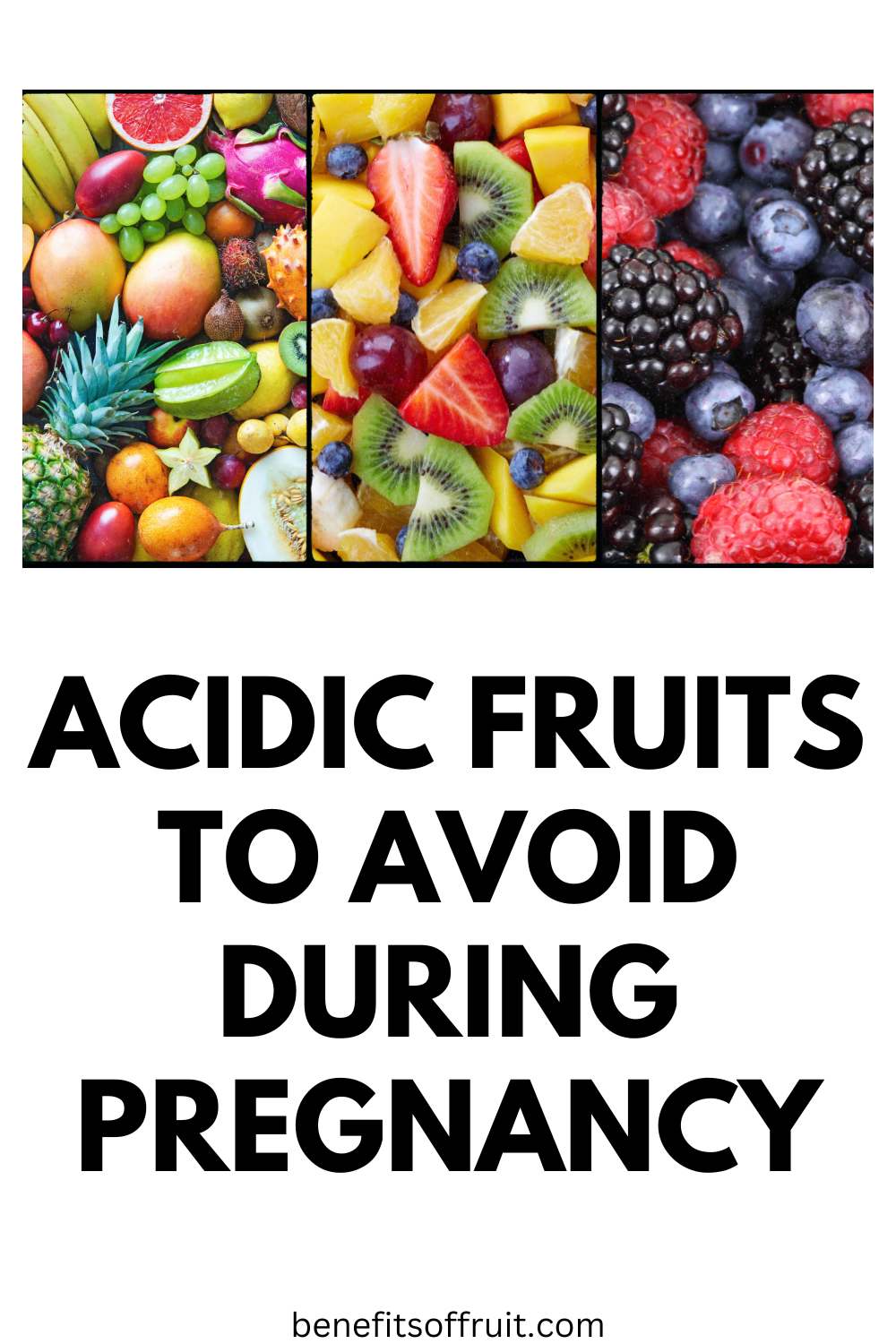During pregnancy, maintaining a balanced and nutritious diet is crucial for the health and development of both the mother and the baby. While fruits are generally recommended as a part of a healthy diet, there are certain acidic fruits that should be approached with caution during pregnancy. In this blog post, we’ll explore the risks associated with consuming acidic fruits during pregnancy and highlight some fruits that are best avoided during this time.
Understanding Acidic Fruits
To understand why certain fruits are considered acidic, it’s essential to grasp the concept of acidity and the pH scale. Acidity in fruits is determined by their pH level, with lower pH values indicating higher acidity. Common acidic fruits include citrus fruits like oranges, lemons, and grapefruits, as well as pineapple, kiwi, berries, and tomatoes.
Risks of Consuming Acidic Fruits During Pregnancy
Consuming acidic fruits during pregnancy can pose several risks to both the mother and the baby. Acid reflux and heartburn are common complaints among pregnant women, and acidic fruits can exacerbate these symptoms. Additionally, the high acidity of these fruits can increase the risk of dental erosion and irritation to the digestive system. There is also some concern about the potential impact of acidic fruits on the development of the baby.
Acidic Fruits to Avoid During Pregnancy
1. Citrus Fruits:
- Oranges: While oranges are packed with vitamin C and other essential nutrients, their high acidity can exacerbate symptoms of acid reflux and heartburn during pregnancy. It’s best to consume oranges in moderation or opt for lower-acid alternatives.
- Lemons: Lemon juice is often used to add flavor to dishes and beverages, but its high acidity can be harsh on the stomach, leading to discomfort and digestive issues for pregnant women. Consider using lemon zest or small amounts of lemon juice sparingly.
- Grapefruits: Grapefruits are known for their tangy flavor and high vitamin C content, but their acidity can trigger acid reflux and digestive discomfort in pregnant individuals. Limiting intake or choosing sweeter, less acidic fruits may be a better option.
2. Pineapple:
Pineapple contains an enzyme called bromelain, which has been linked to softening the cervix and potentially inducing labor. While the amount of bromelain in pineapple is generally considered safe for consumption during pregnancy, some healthcare providers advise against consuming large quantities, particularly in early pregnancy, to avoid potential complications.
3. Kiwi:
Kiwi is a nutritious fruit rich in vitamins and minerals, but its high acidity may contribute to digestive issues such as acid reflux and heartburn during pregnancy. Eating kiwi in moderation and pairing it with alkaline foods can help minimize discomfort.
4. Berries:
- Strawberries: Strawberries are a popular summer fruit known for their sweetness and vibrant color. However, their high acidity can irritate the stomach lining and exacerbate symptoms of acid reflux and heartburn in pregnant individuals. Enjoy strawberries in small portions and consider pairing them with yogurt or other dairy products to neutralize acidity.
- Raspberries: Raspberries are delicious and nutritious, but their tartness can be too acidic for some pregnant women. Consuming raspberries in moderation and opting for ripe, sweeter berries can help reduce the risk of digestive discomfort.
- Blueberries: Blueberries are a powerhouse of antioxidants and vitamins, but their acidity may cause digestive issues for pregnant individuals. Eating blueberries in moderation and combining them with alkaline foods like oatmeal or yogurt can help balance acidity levels and minimize discomfort.
5. Tomatoes:
Tomatoes are a staple ingredient in many dishes, but their high acidity can trigger heartburn and acid reflux in pregnant women. Cooking tomatoes can help reduce their acidity, making them easier to digest. Alternatively, opting for low-acid tomato varieties or tomato-based products in moderation may be better tolerated during pregnancy.

Alternatives to Acidic Fruits
While it’s important to limit or avoid acidic fruits during pregnancy, there are plenty of alternatives that can provide similar nutritional benefits without the acidity. Opt for low-acid fruits such as bananas, apples, pears, and melons. These fruits are not only gentle on the stomach but also packed with essential vitamins and minerals.
Tips for Managing Acidic Fruit Consumption During Pregnancy
If you’re craving acidic fruits during pregnancy, here are some tips to help you manage their consumption:
- Practice moderation and limit your intake of acidic fruits.
- Pair acidic fruits with alkaline foods like leafy greens, whole grains, and lean proteins.
- Choose ripe fruits, as they tend to be less acidic.
- Stay hydrated by drinking plenty of water throughout the day.
Conclusion
While fruits are an important part of a healthy diet, certain acidic fruits should be approached with caution during pregnancy. By avoiding or limiting the consumption of acidic fruits and opting for alternatives that are gentler on the stomach, you can help ensure a healthy and comfortable pregnancy for both you and your baby. As always, it’s essential to consult with your healthcare provider for personalized dietary advice during pregnancy.